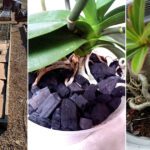Explore the unique world of flowers that look like brains and incorporate these intriguing blooms into your garden!
Add a whimsical touch to your garden with these flowers that look like brains and flaunt your creative green thumb!
Flowers that Look Like Brains
1. Cockscomb
Botanical Name: Celosia cristata
The Cockscomb offers vibrant colors and a unique, brain-like texture, making it an interesting addition to any garden. Its convoluted and wavy blooms resemble the intricate folds of a brain. Suited for both cut flower arrangements and borders, it thrives in well-drained soil under full sun.
2. Golden Root

Botanical Name: Rhodiola rosea
Although primarily known for its adaptogenic properties, Golden Root also sports blooms that mimic the appearance of a brain. The flower clusters are tightly packed and offer a textured, cerebrum-like look. Plant it in rocky soil and ensure ample sunlight for optimum growth.
3. Mourning Bride

Botanical Name: Scabiosa atropurpurea
Mourning Bride offers pin-cushion-like flowers that closely mimic the structure of a brain. The tightly packed florets create a unique, cerebellum-like appearance. It’s an excellent choice for butterfly gardens and prefers sandy, loamy soil.
4. Lotus
Botanical Name: Nelumbo nucifera
While mainly known for its spiritual significance, the seed pod of the Lotus bears an uncanny resemblance to a brain. Its symmetrical seed cavities mimic the lobes of a brain. This aquatic plant requires full sun and a depth of 18-24 inches of still water.
5. Partridge Feather

Botanical Name: Tanacetum densum ssp. amani
This perennial offers feathery, silver-gray foliage, and when in bloom, the small, clustered flowers resemble the convolutions of a brain. This drought-resistant plant prefers full sun and well-drained soil.
6. Dune Tansy

Botanical Name: Tanacetum camphoratum
Sporting yellow, button-like flowers, the Dune Tansy’s blooms have a distinct, brain-like appearance due to their tightly packed florets. This native Californian plant prefers sandy, well-drained soil and tolerates salt spray and strong winds.
7. Mediterranean Strawflower

Botanical Name: Helichrysum stoechas
The tightly clustered blooms of this perennial offer a visual treat that resembles the texture and complexity of a human brain. Adapted to hot, dry climates, this plant thrives in well-drained, sandy soil and full sun exposure.







